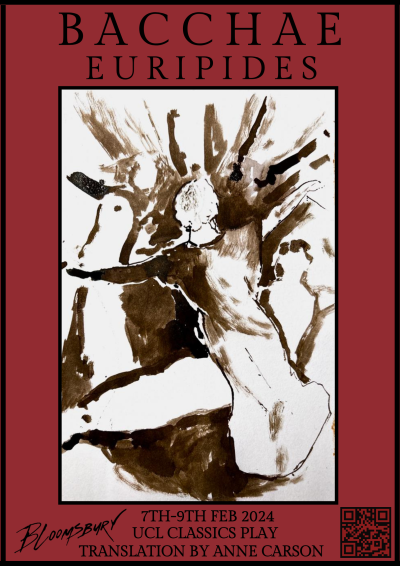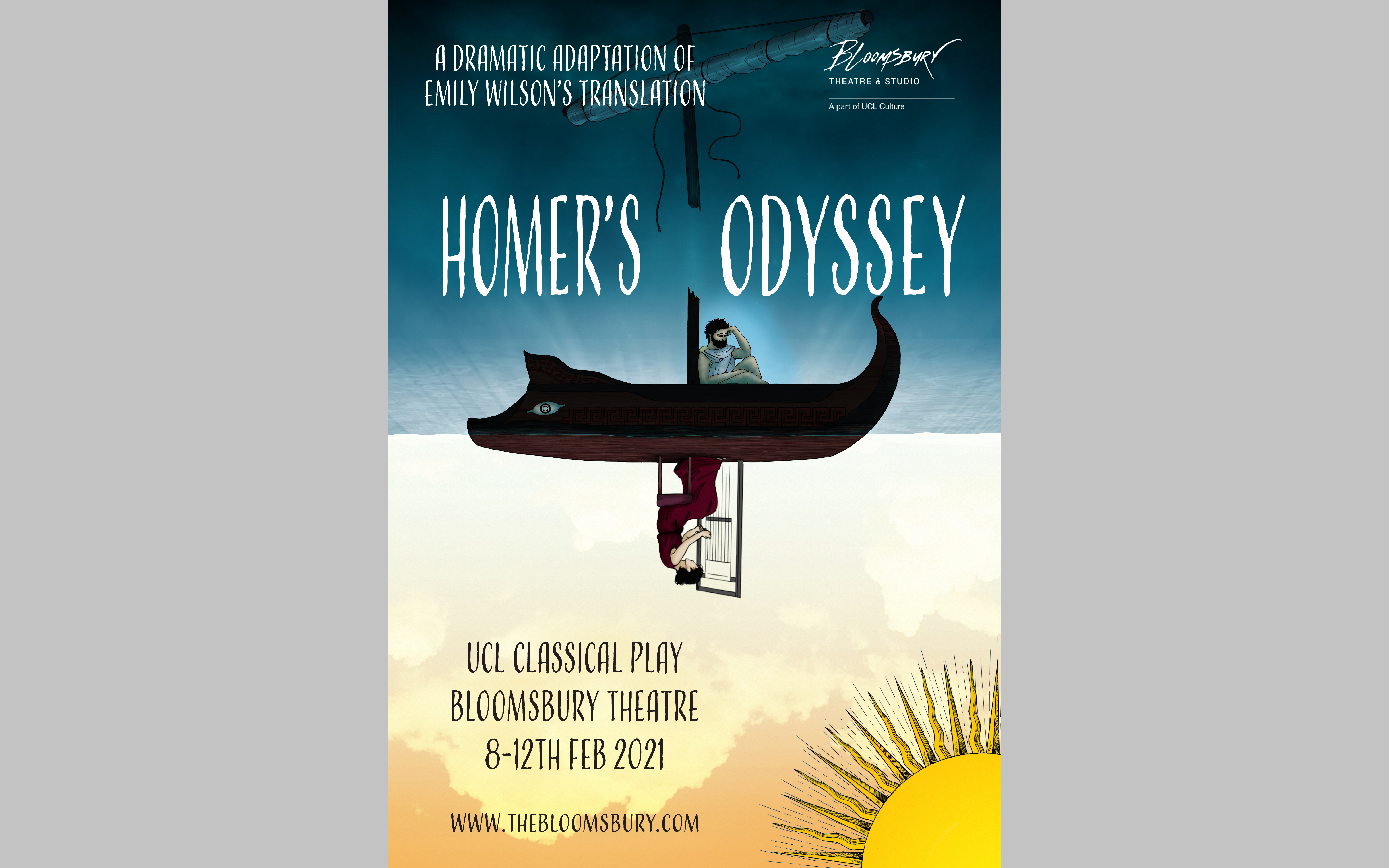Classical Play
2024 Euripides' Bacchae
We will perform Euripides' Bacchae in February 2024.

The UCL Classical Play: information
This is now one of the most famous and long-running commitments to the modern production of ancient drama in the world. It attracts large audiences, many of whom are young people studying classical drama at school or university, and is regularly reviewed in the national press. Ticket prices are kept low.
The production is managed by students in the Department of Greek and Latin, with help and advice from staff. A number of former students involved in the classical play have gone on to careers in drama. Students choose a director and a producer in the autumn: the title of the play for the following year is announced in late October (and is advertised on this website).
The Department of Greek and Latin is committed to bringing these productions to the widest possible audience. For each production we run a programme of lectures and workshops, free and open to the public, which are run by leading academics and theatre experts from across the UK. For the benefit of schools and colleges we also create a web-page of study materials on ancient drama in general, and with special focus on the current year's performance.
Interview with TORCH (Oxford) about the importance and tradition of the Greek/Classical play:
 Close
Close


